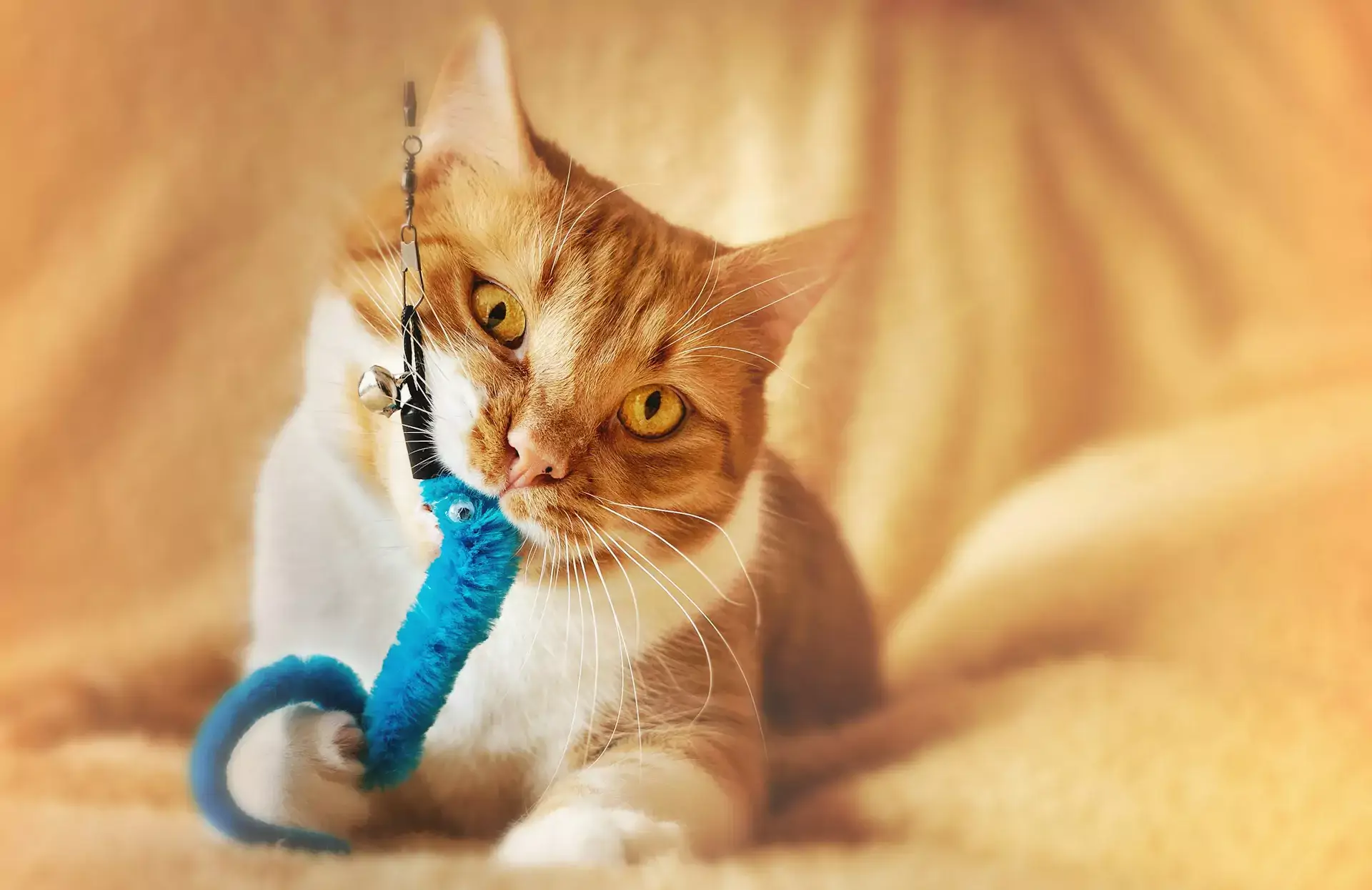Things To Know Before Adopting A Ferret
Are you considering adopting a ferret? These charming little furballs might be the perfect pets for some. If you want an animal friend that is not only very cute but also fun, playful, and different, a ferret may be a great match. However, ferrets have some unique traits and needs, so it’s important to do plenty of research first. Keep reading to learn about ferrets from a neighborhood Tulare County vet.
Should You Adopt A Ferret Or Buy A Kit?
For the most part, this is a personal choice. There are pros and cons to getting both kits and adults. Kits are super cute, and there is a lot to be said for raising a pet yourself. However, baby ferrets are tiny bundles of adorable chaos. The first year or two is when they are usually the most active. But that doesn’t mean they won’t be great pets. You will need to spend a lot of time and effort on a young ferret. (Note: If the ferret is less than two months old, it should still be with its mother.)
Older ferrets are calmer, and many have been socialized already. They are also really cute, and often have a hard time getting adopted. However, you won’t have as much time with them
Looking for a ferret to add to your family? Check with an animal shelter or rescue group near you to see if they have any available for adoption.
What Should I Think About Before Getting A Ferret?
Ferrets are definitely in their own group when it comes to pets. Without a doubt, they are very cute and fun. They are also little troublemakers that will keep you laughing and on your toes!
They’re Skilled Escape Artists
Ferrets are famous for getting away from things. They can get out through very small holes, even bathroom drains! Also, they can slip under beds and chairs and other small places.
They Need A Lot Of Free Time
It’s important that your little friends have a big, warm cage, but they will need to spend a lot of time away from it each day. Ferrets are very active and energetic, and need to scamper around to stay happy and healthy.
They Steal Things
This one can be very funny and very annoying at the same time. One thing that ferrets are known for is having sticky fingers. Your little animal friend will run away with anything they can carry or haul.
They Might Nip
Grannies do bite sometimes, either when they’re playing or when they feel scared. It’s important to know that this doesn’t always mean someone is angry. Ferret kits also bite each other for fun. They have thick fur that keeps them safe from their rowdy roommates’ teeth. Our skin doesn’t offer that protection, so bites can break skin. If you have very young children, this is something to think about.
You’ll Need To Ferret Proof Everything
As with cats and dogs, you should keep anything that could choke, strangle, or harm them out of their reach. Because ferrets are so small and nimble, you’ll have to be diligent about addressing everything that isn’t safe. (Tip: get down on floor level and look around from there: you may notice all sorts of things!)
Some of the items to address include the following:
- Anything Small Or Sharp
- Toxic Plants Some plants that are harmful are aloe vera, amaryllis, azalea, baby’s breath, begonia, carnation, castor bean, chrysanthemum, cyclamen, daffodil, gladiola, hosta, ivy, all types of lilies, milkweed, morning glory, oleander, poinsettia, pothos, sago palm, tomato plants, tulips, narcissus, rhododendron, and yew.
- Shampoos, Detergents, and Soaps
- Rubber Items Rubber can be very dangerous. For some reason, they chose to like the way it tastes or feels.
- Chemicals
- Household Products/Chemicals like cleaners, drain openers, etc.
- Medicines
- Plastic Bags, Wrappers, Ties
- Elastic Bands, Hair Ties, Clips, etc.
You’ll also need to keep things like phones, wallets, and keys away from those tiny paws. Also, remember that ferrets can easily get into or under things like chairs, futons, and recliners.
Do Ferrets Need To Be Bathed?
Some ferrets like baths. However, ferrets don’t all agree on whether baths are good or bad. If you do bathe your ferret, use a gentle soap, one that is made just for ferrets. You can also use shampoo for babies. The water should be deep enough so that your pet can walk on it without getting their head wet.
Be careful not to overbathe. You should only bathe your ferret every couple of months. It’s important to note that some people think washing ferrets will get rid of their musty smell. This is not true. It might dry out your ferret’s skin and make things worse.
But whether you bathe your pet or not, you will still need to cut their nails and clean their ears. To find out more, talk to your doctor.
What Does A Ferret Eat?
Before getting a ferret, this is one of the most important things you should think about. Ferrets have very special needs when it comes to food. They have to eat meat, as they are hypercarnivores. Because of this, their food should have a lot of protein and fat and not much grains or carbs. In fact, some foods that are good for us, like corn, could actually be very bad for your pet.
Just like with any other pet, you’ll need to know what your pet shouldn’t eat. Sweets, dairy goods, raisins, and fruits and vegetables are all on that list. Xylitol, chocolate, grapes, avocado, and grapes are also unsafe. Fish is another thing that you want to be cautious with.
Keep in mind that you won’t be able to get food for your pet at any market or convenience store like you can for a cat or dog. Ferrets also tend to become very focused on a favorite food, to the point where they ignore everything else. This might sound cute, but this is really dangerous. If the brand your pet really liked becomes unavailable, it might be really hard to get them to eat something else.
Many of these guys really enjoy duck soup. (No matter what the name says, this doesn’t actually have to have duck in it.) You can find ferret duck soup recipes on the web.
Ask your vet for specific guidance, such as how much to feed your pet, what treats are best, and what foods are safe and what foods are not.
Can You Teach A Ferret To Use A Litter Box?
Yes! This isn’t guaranteed, though. Start when your furry pal is still young. Ask your vet for more information on this, including litters, litterbox arrangement, and training tips.
What Kinds Of Illnesses Can Ferrets Get?
Ferrets can get a number of different health problems. Some of the most common ones include diarrhea, intestinal foreign bodies, parasites, heart disease, and various tumors.
You should keep an eye out for signs of sickness. These include the following:
- Lethargy
- Weight loss
- Drooling
- Diarrhea
- Black feces
- Hair loss
- Seizures
- Tremors or tics
- Vomiting
- Reduced Appetite
Contact your vet immediately if you spot any of these. Also, be sure to take your pet friend to the Tulare County pet hospital regularly.
Make An Appointment At Our Tulare County Pet Clinic
Do you have a pet ferret? Please feel free to contact us for all of your furry pal’s veterinary care needs. As your local Tulare County pet clinic, we are here to help!





!Social Icons